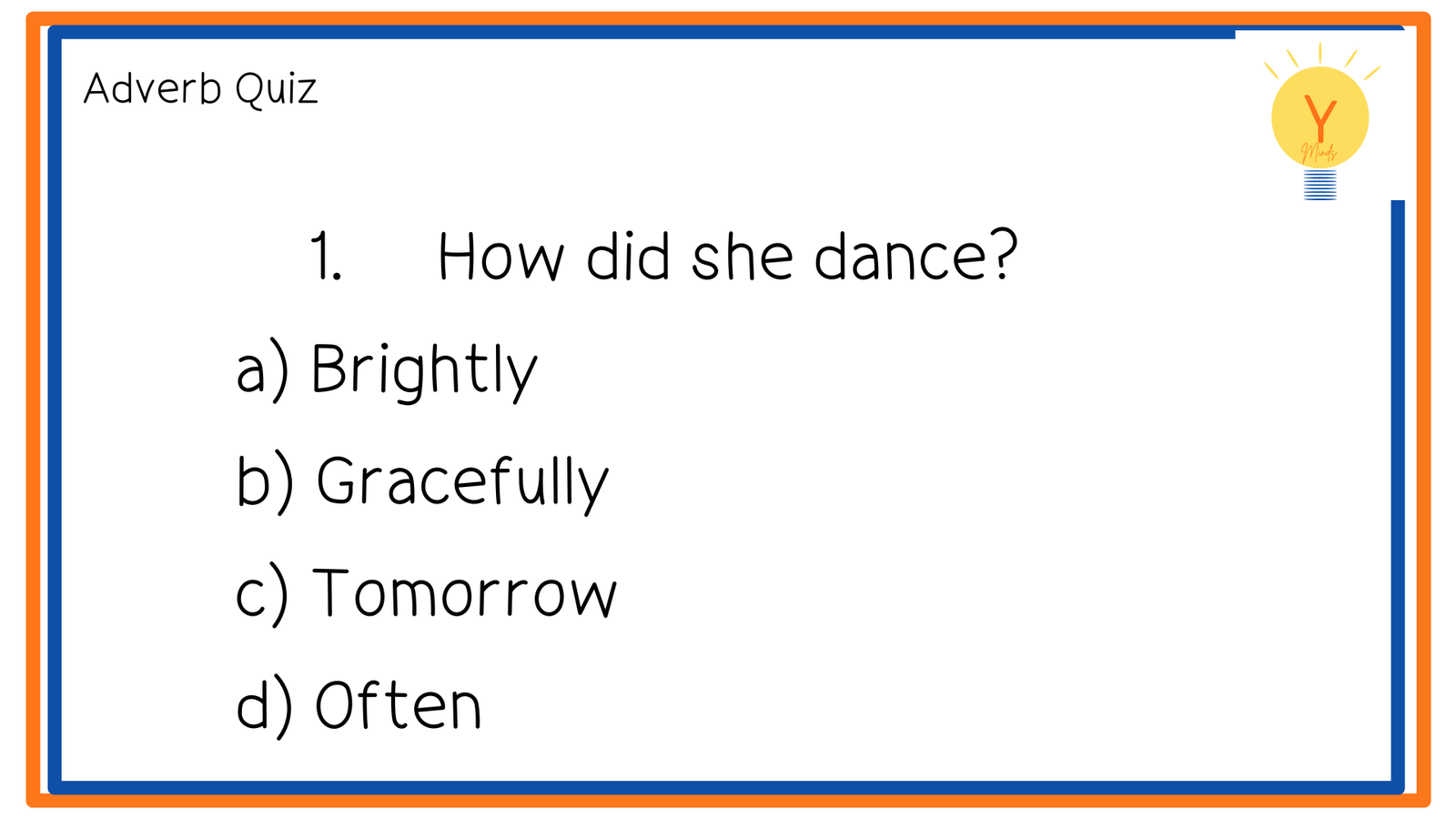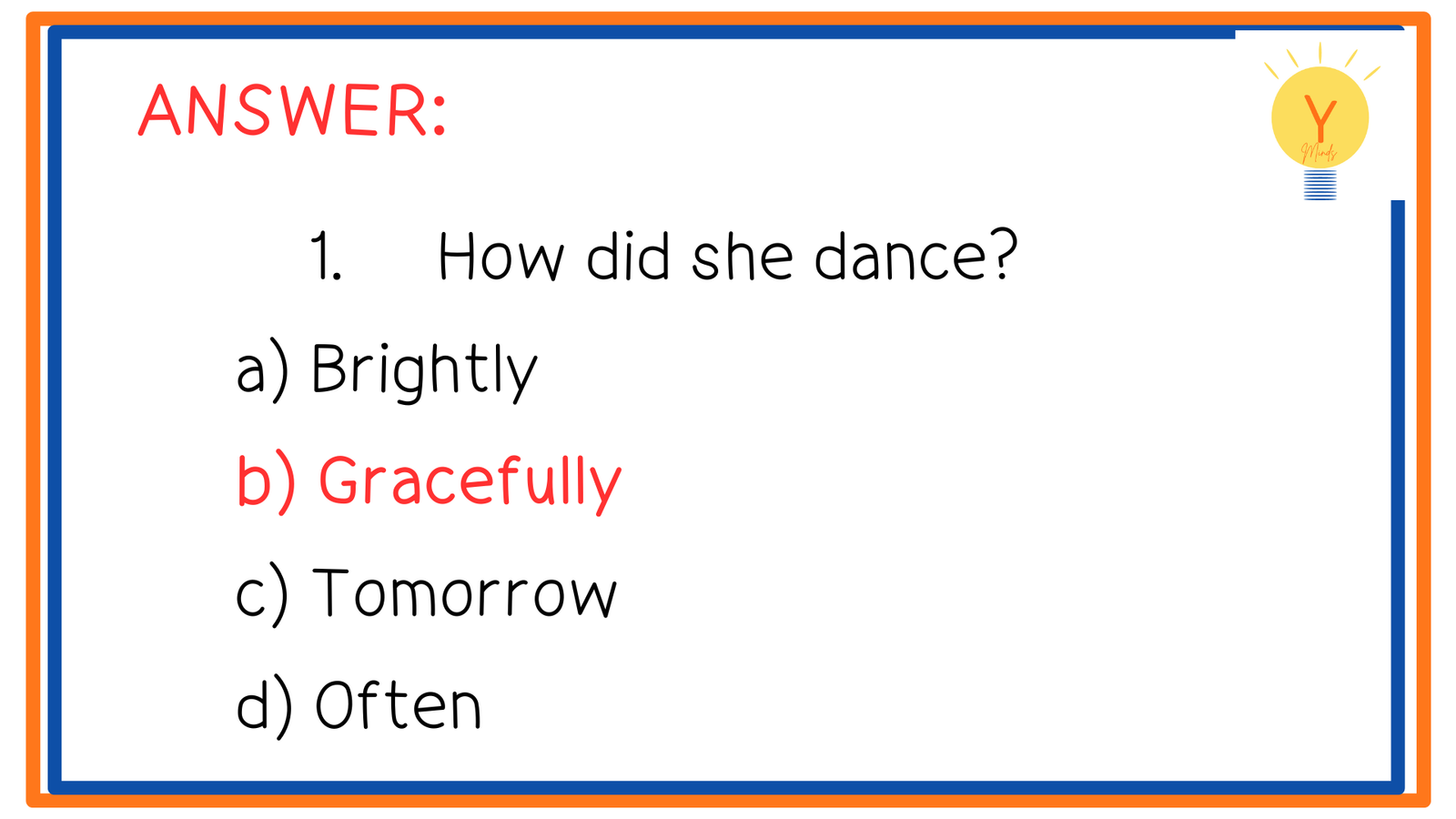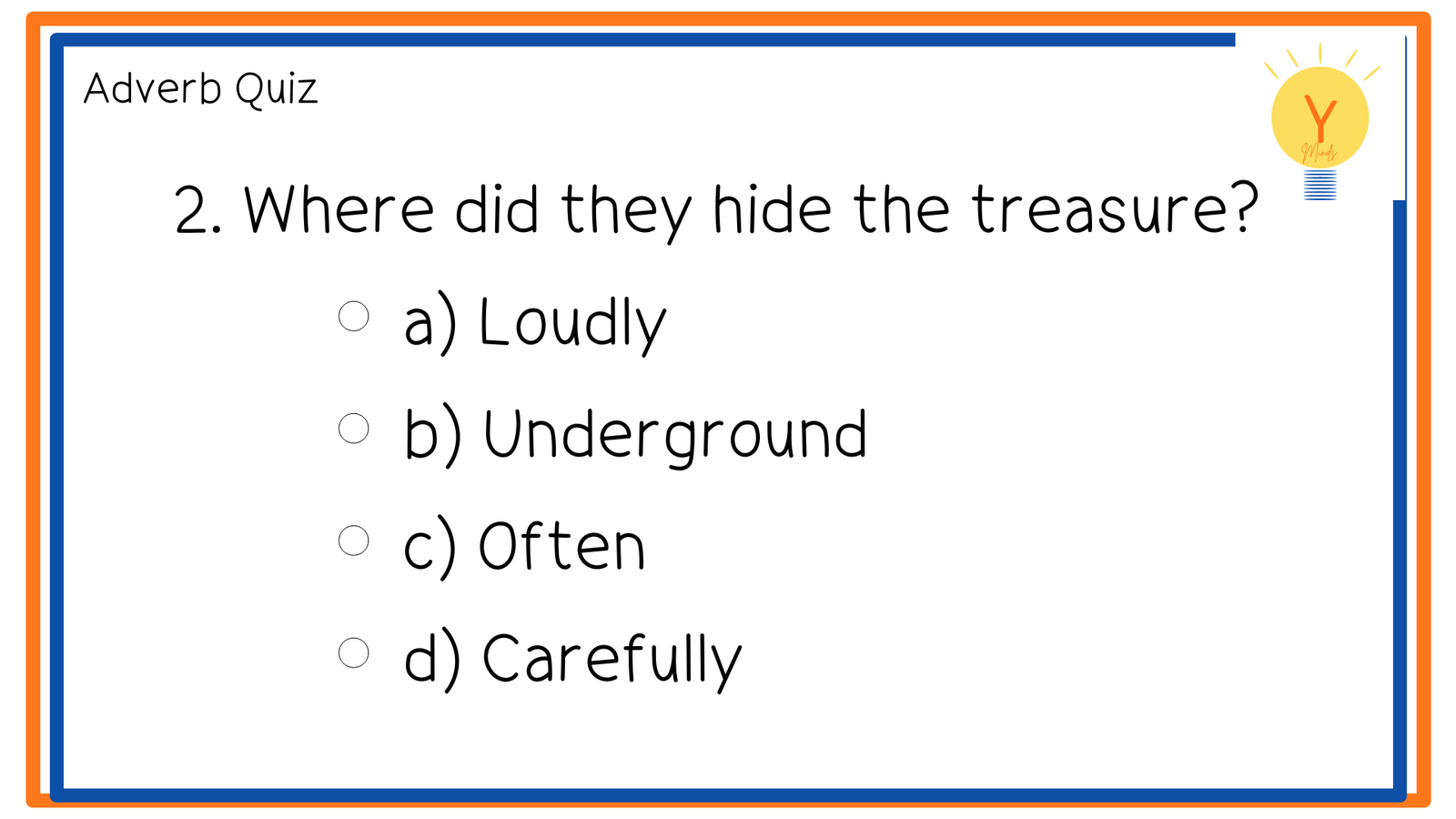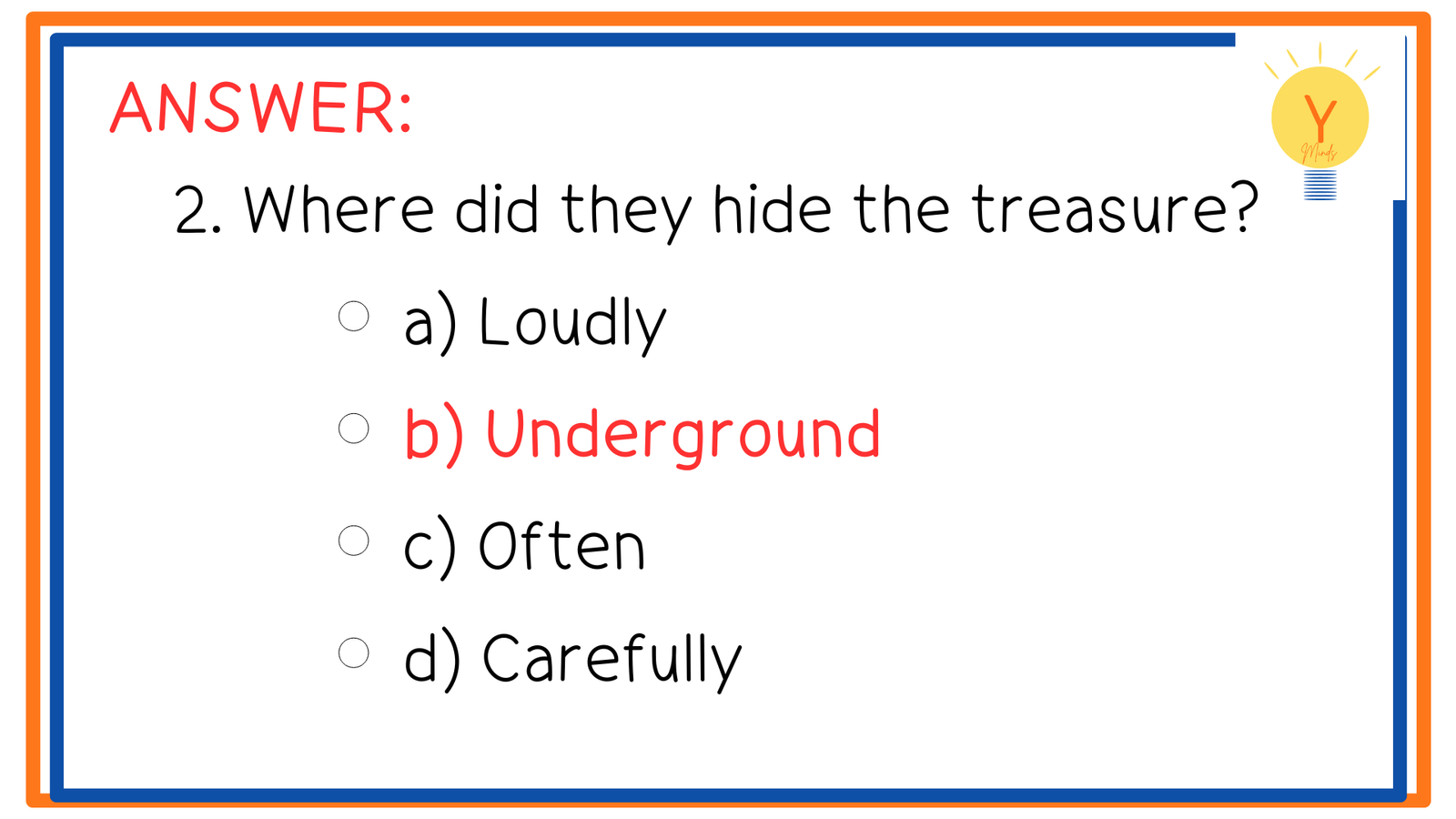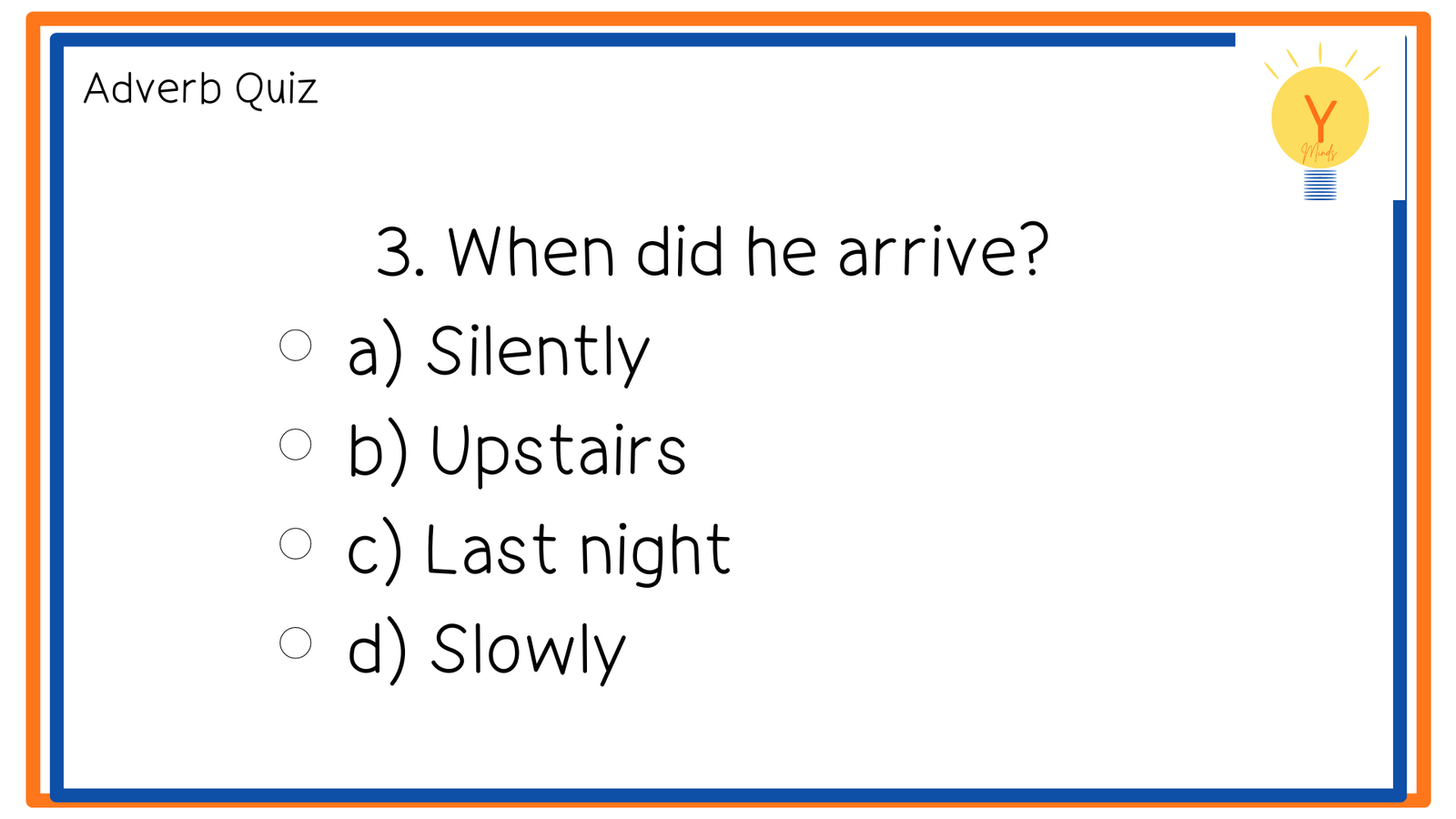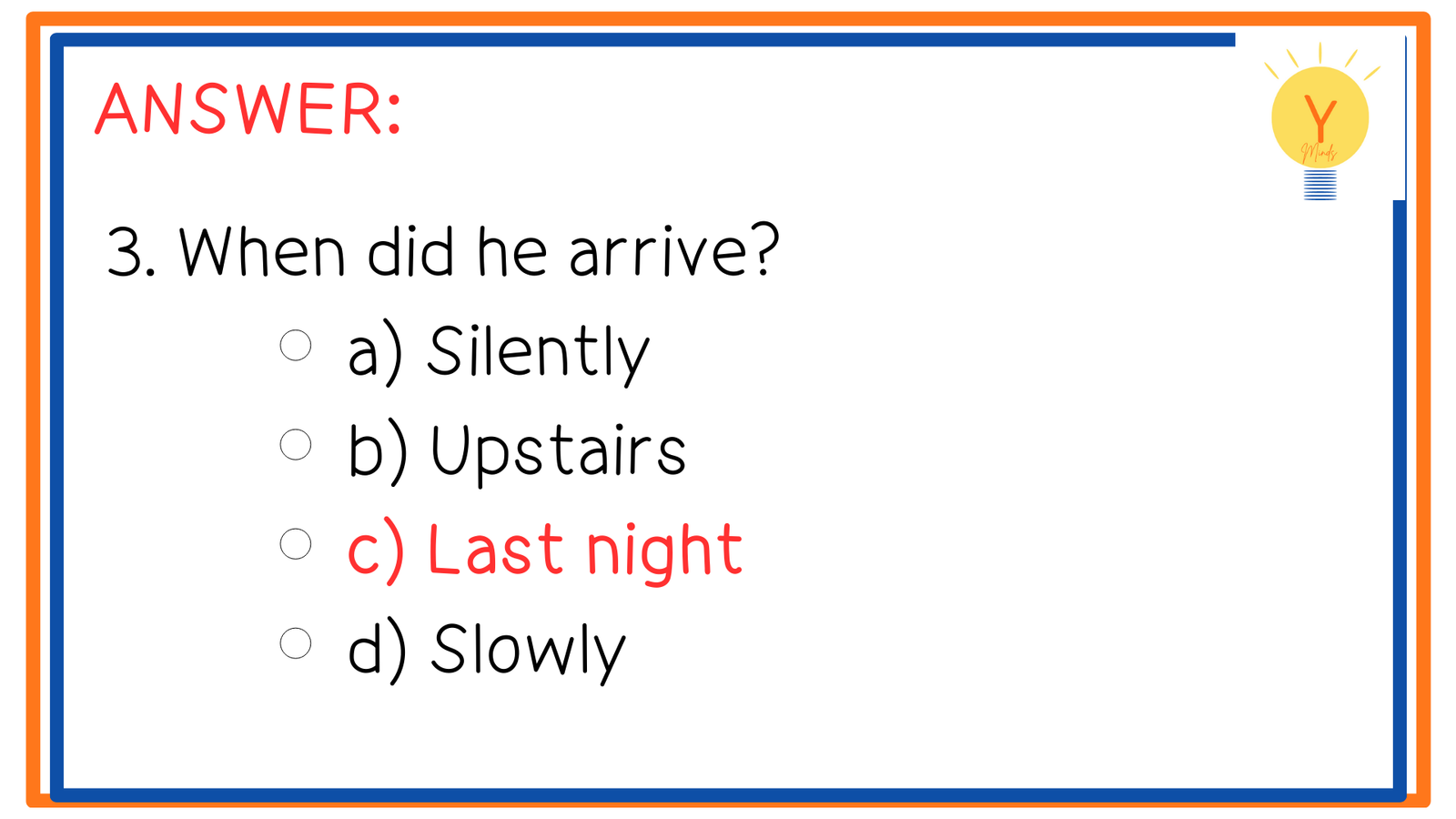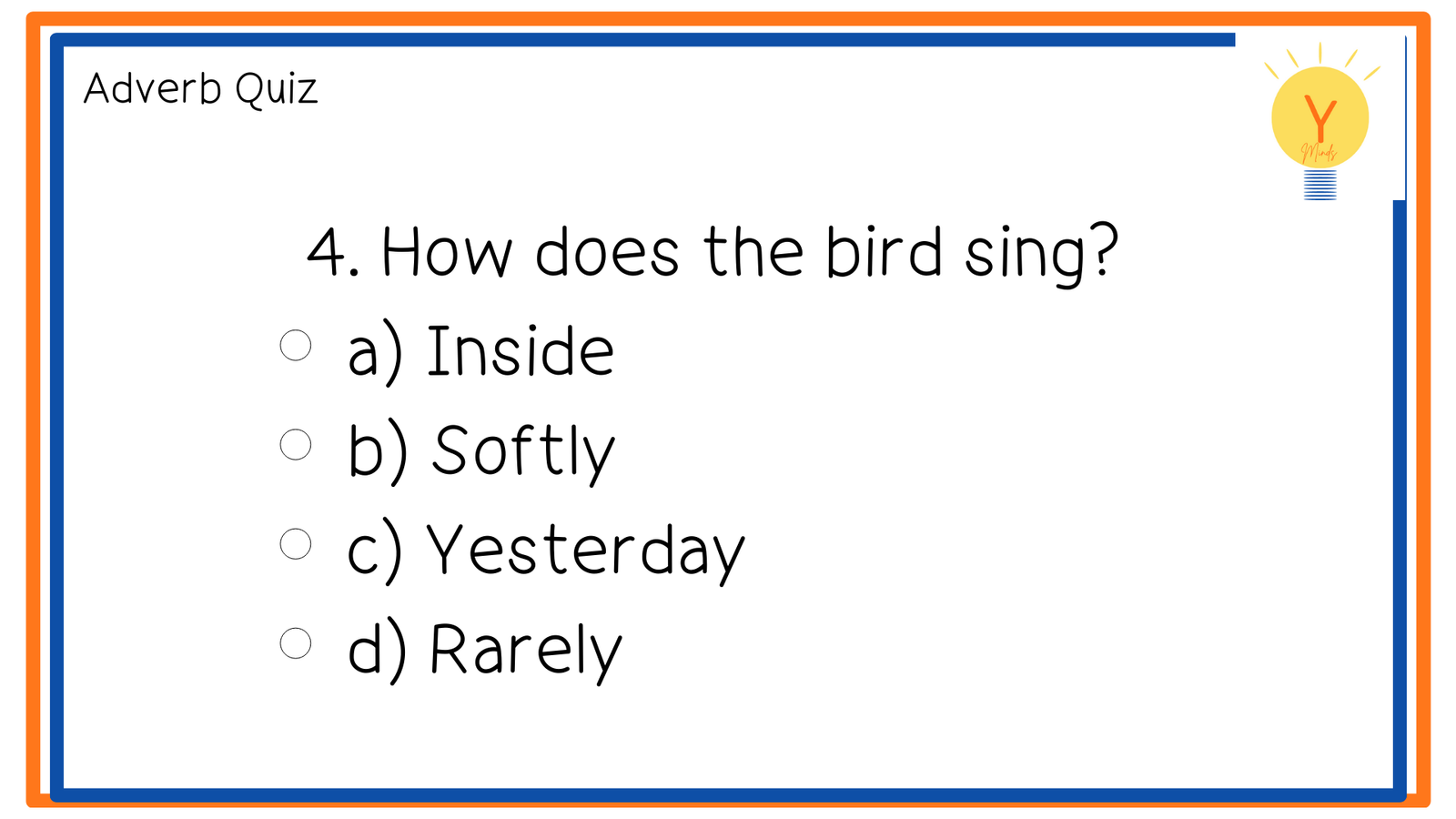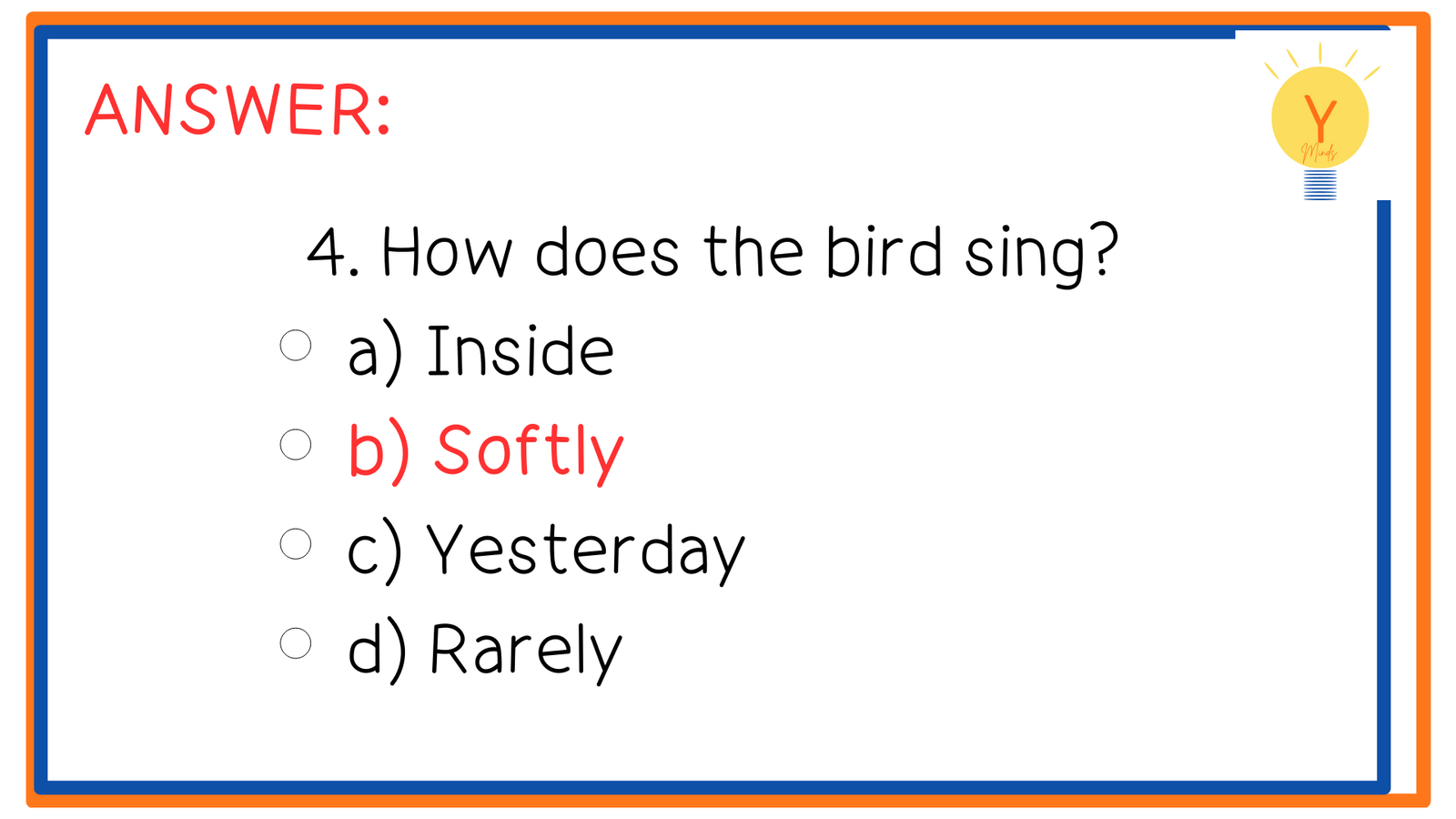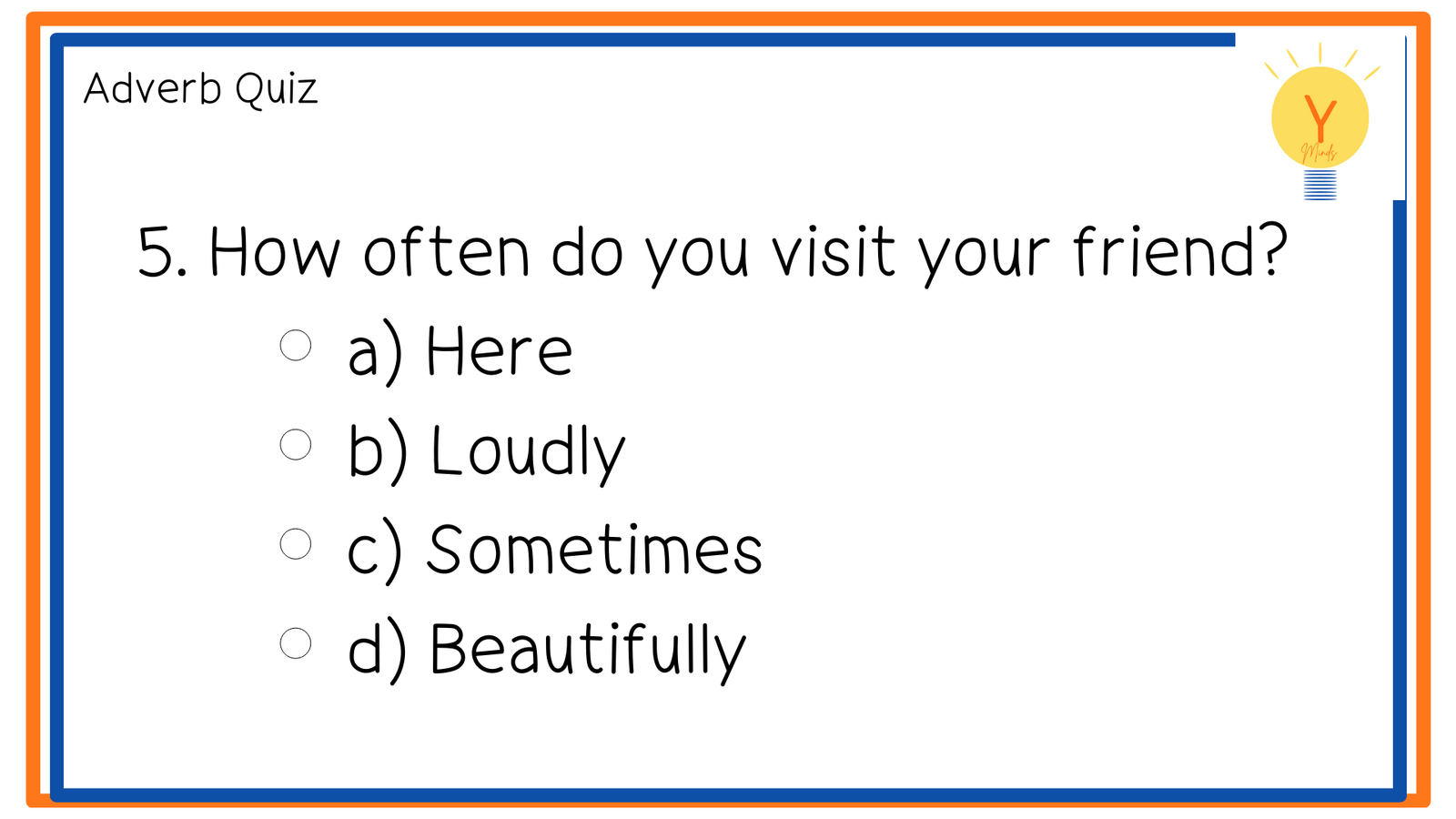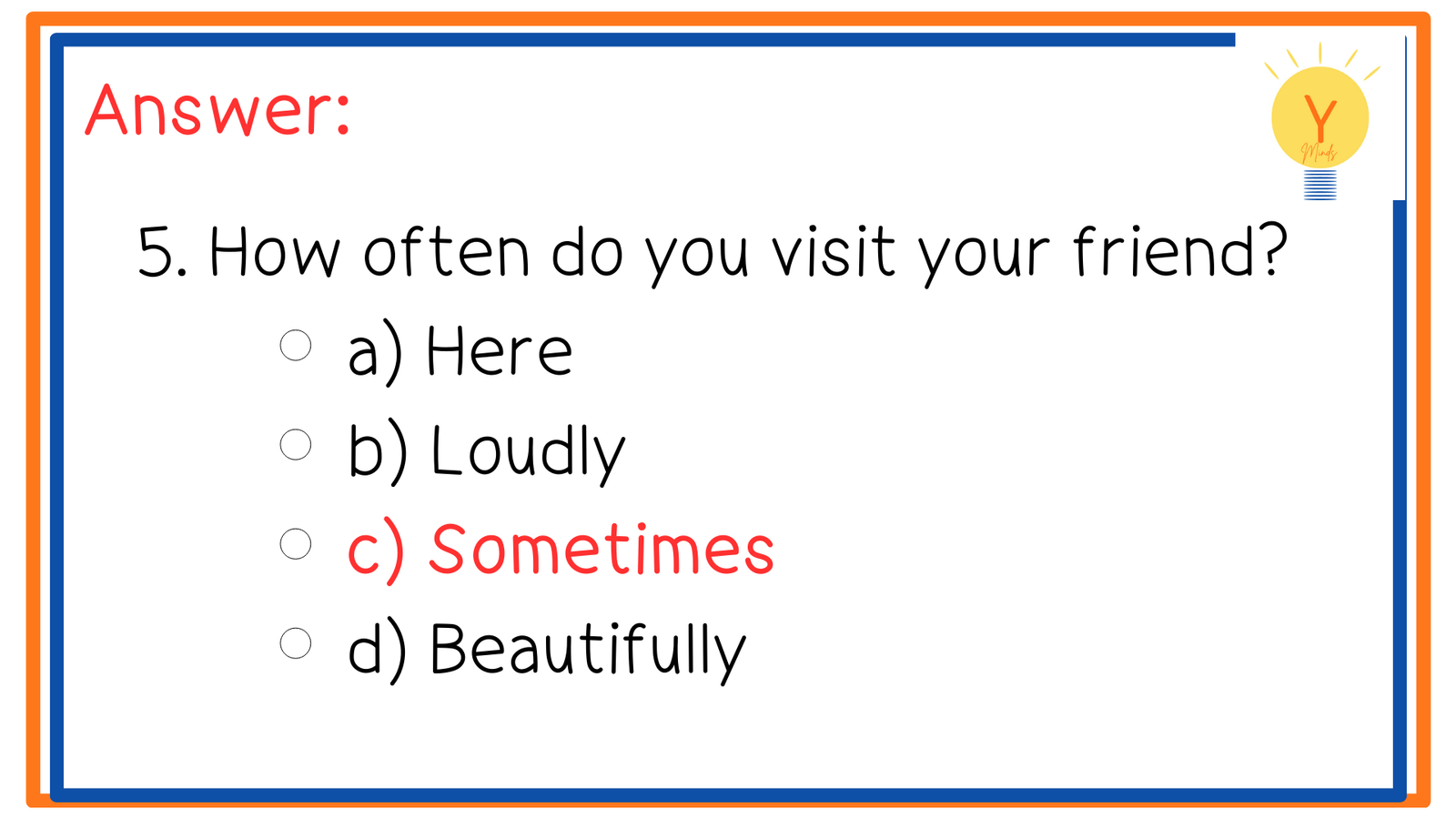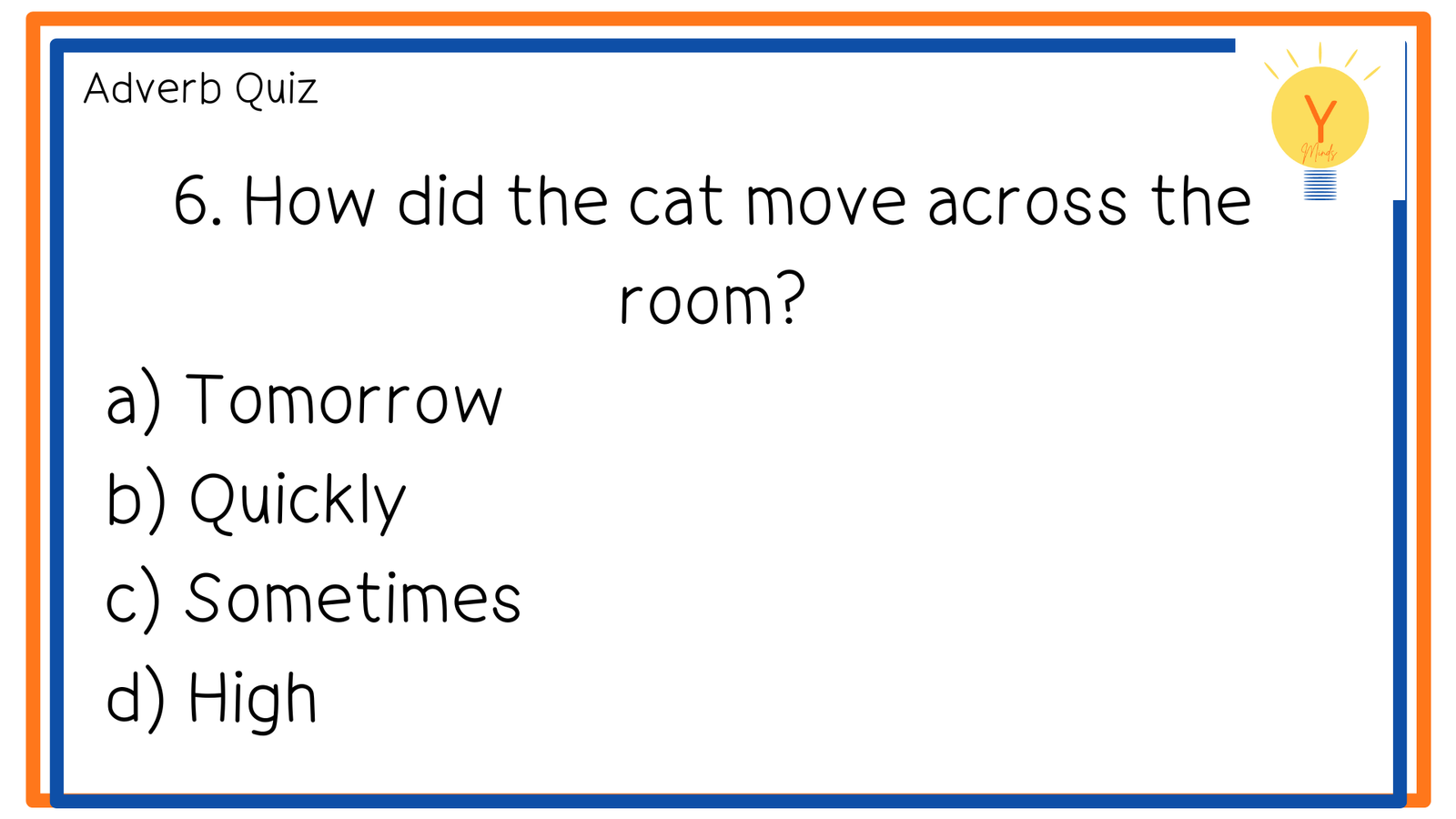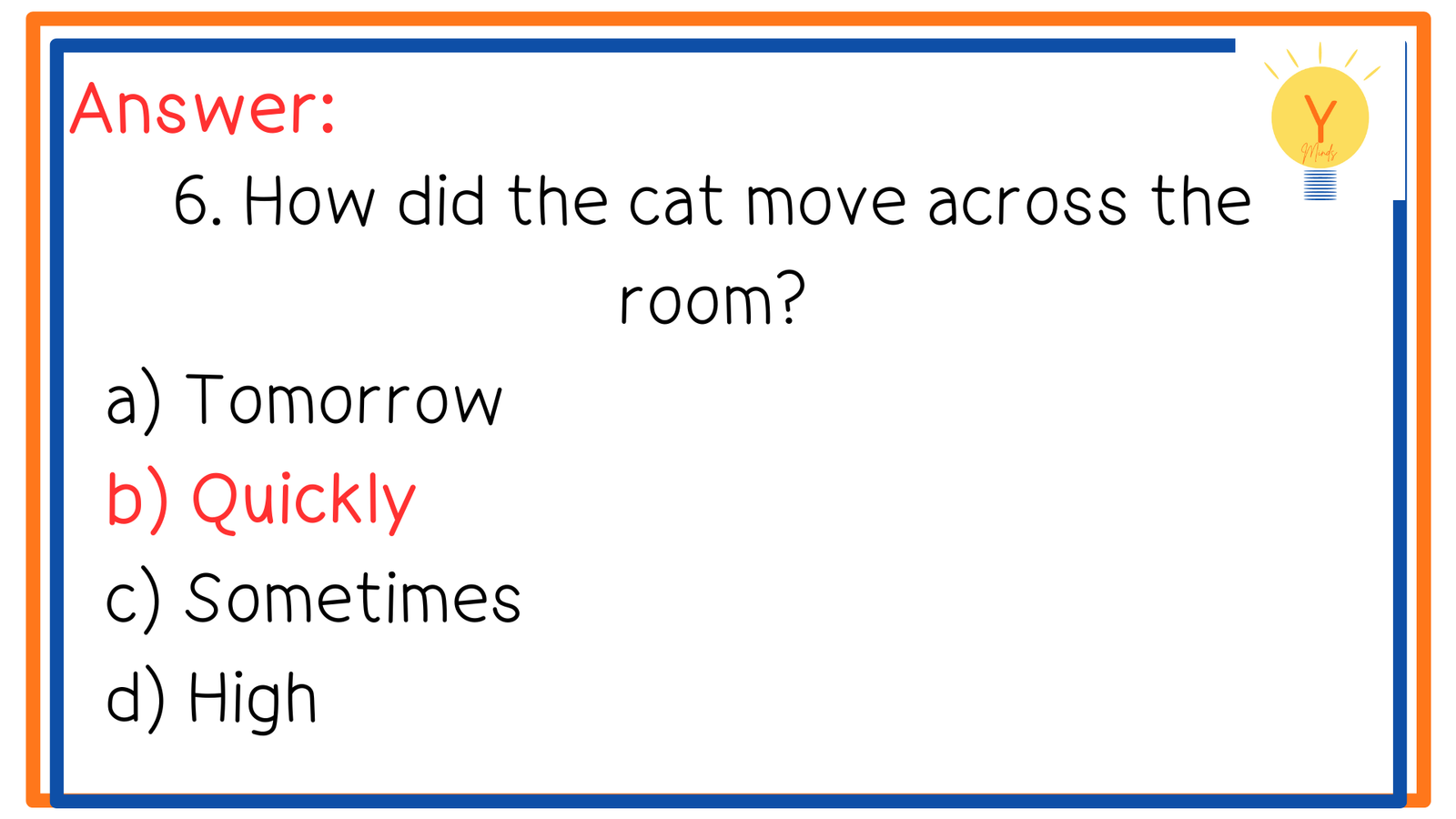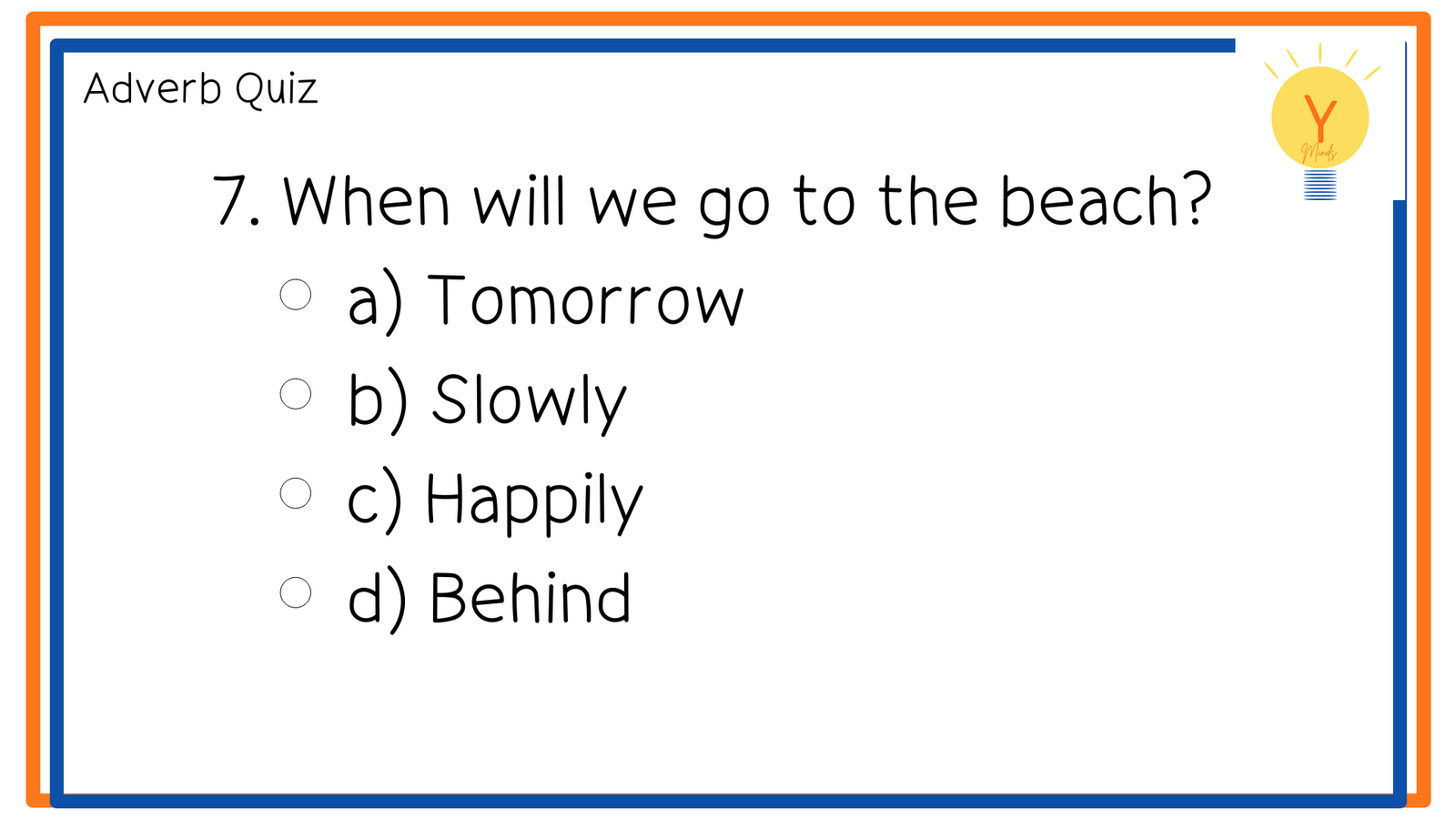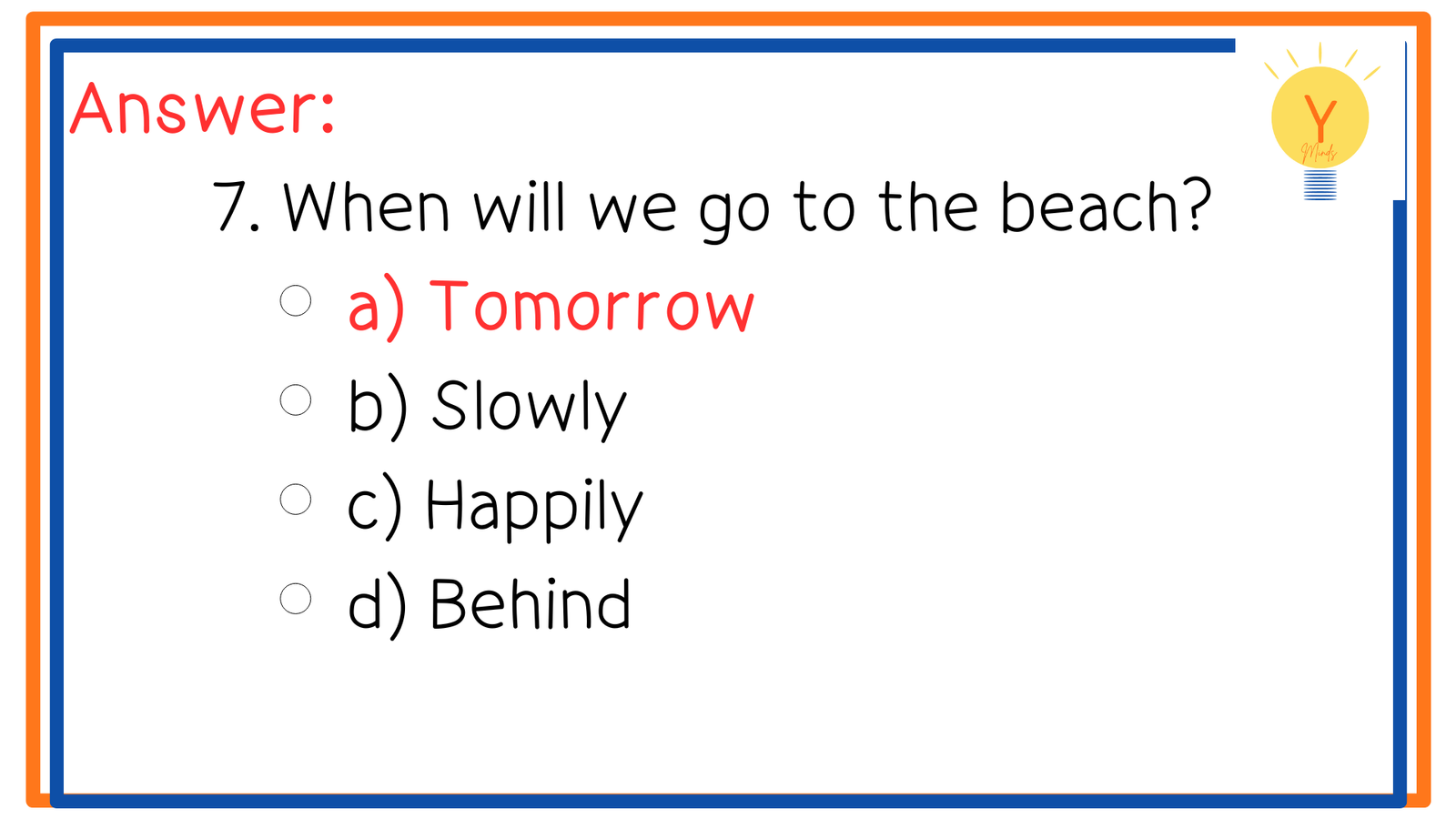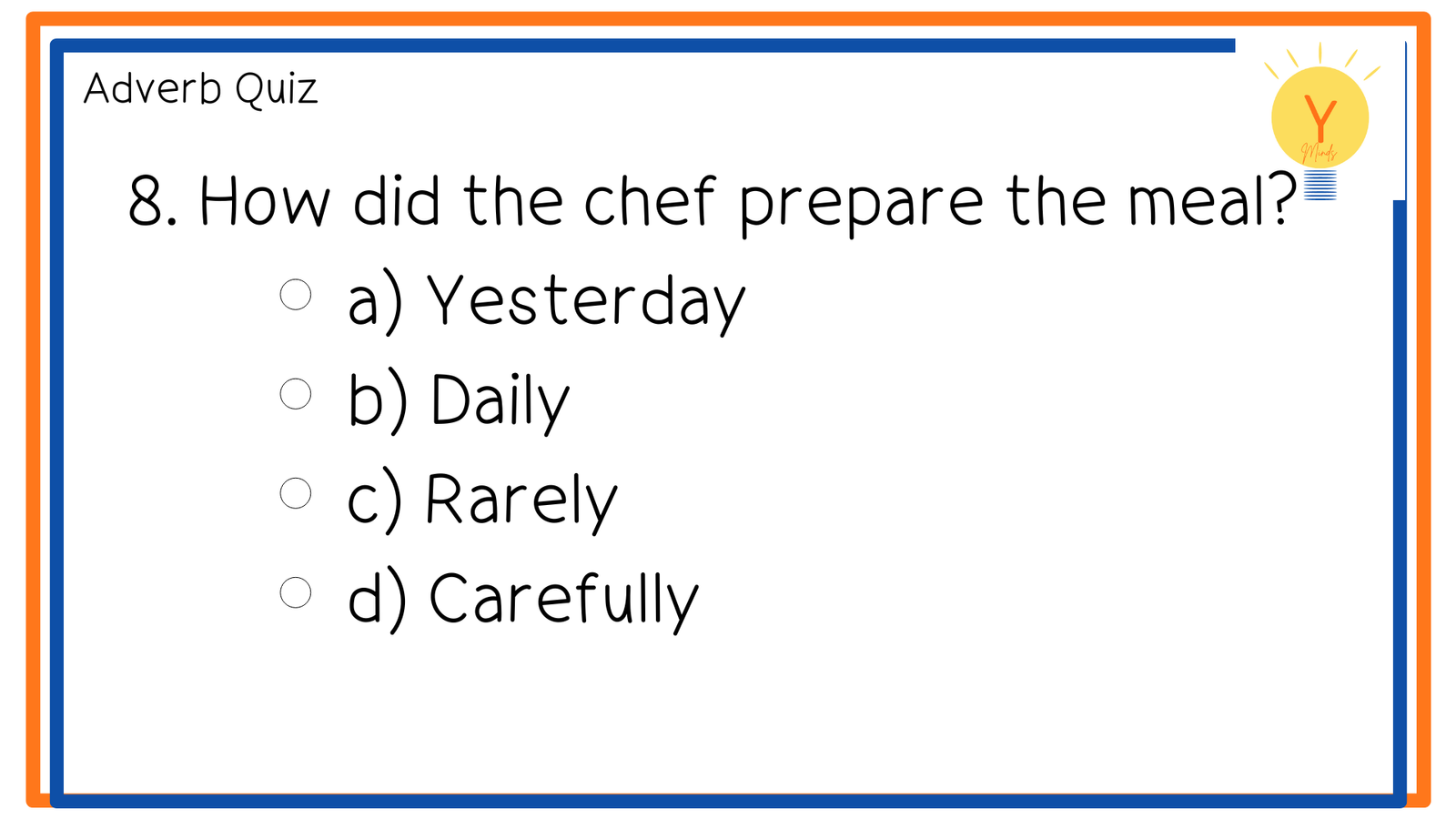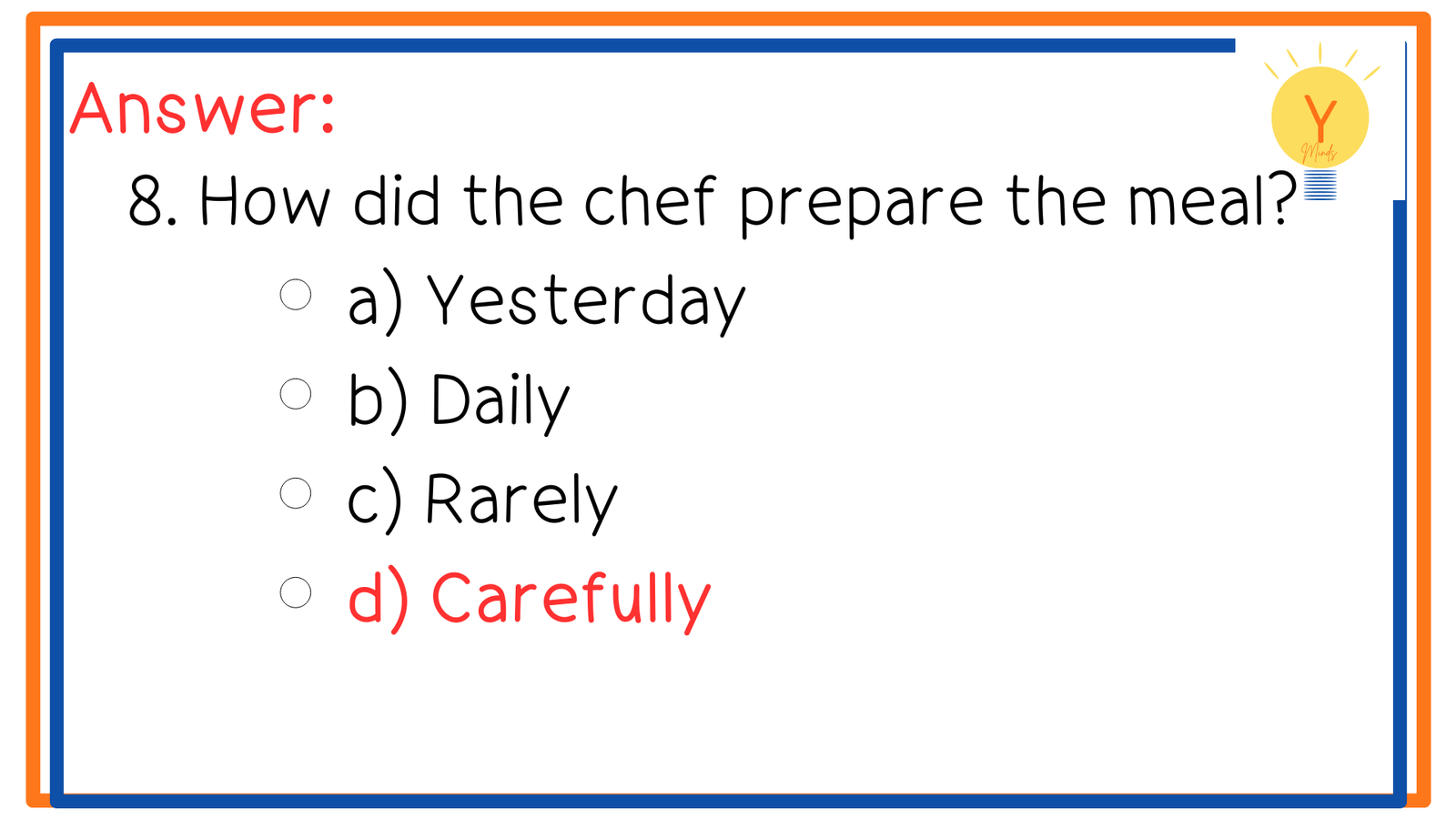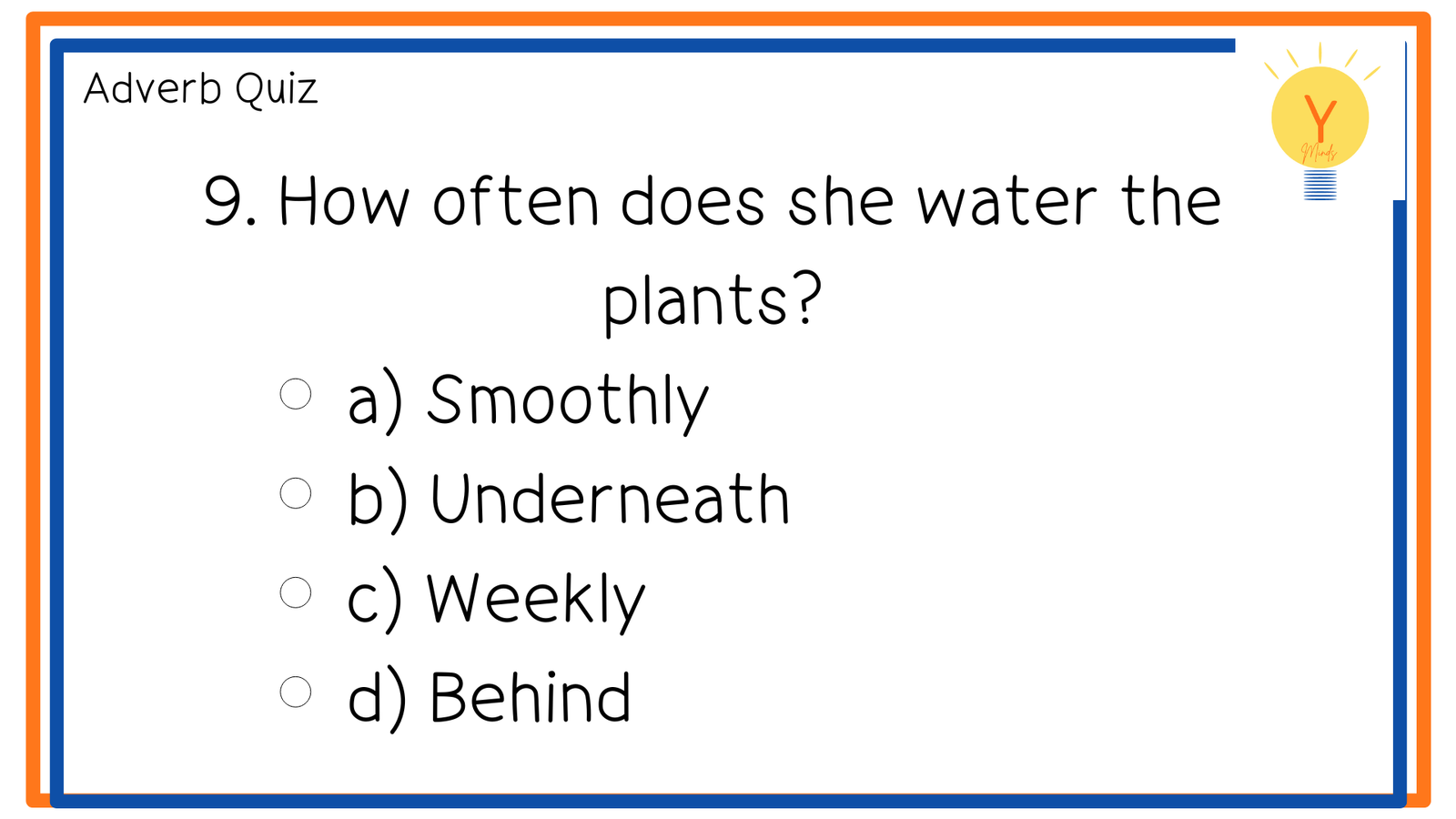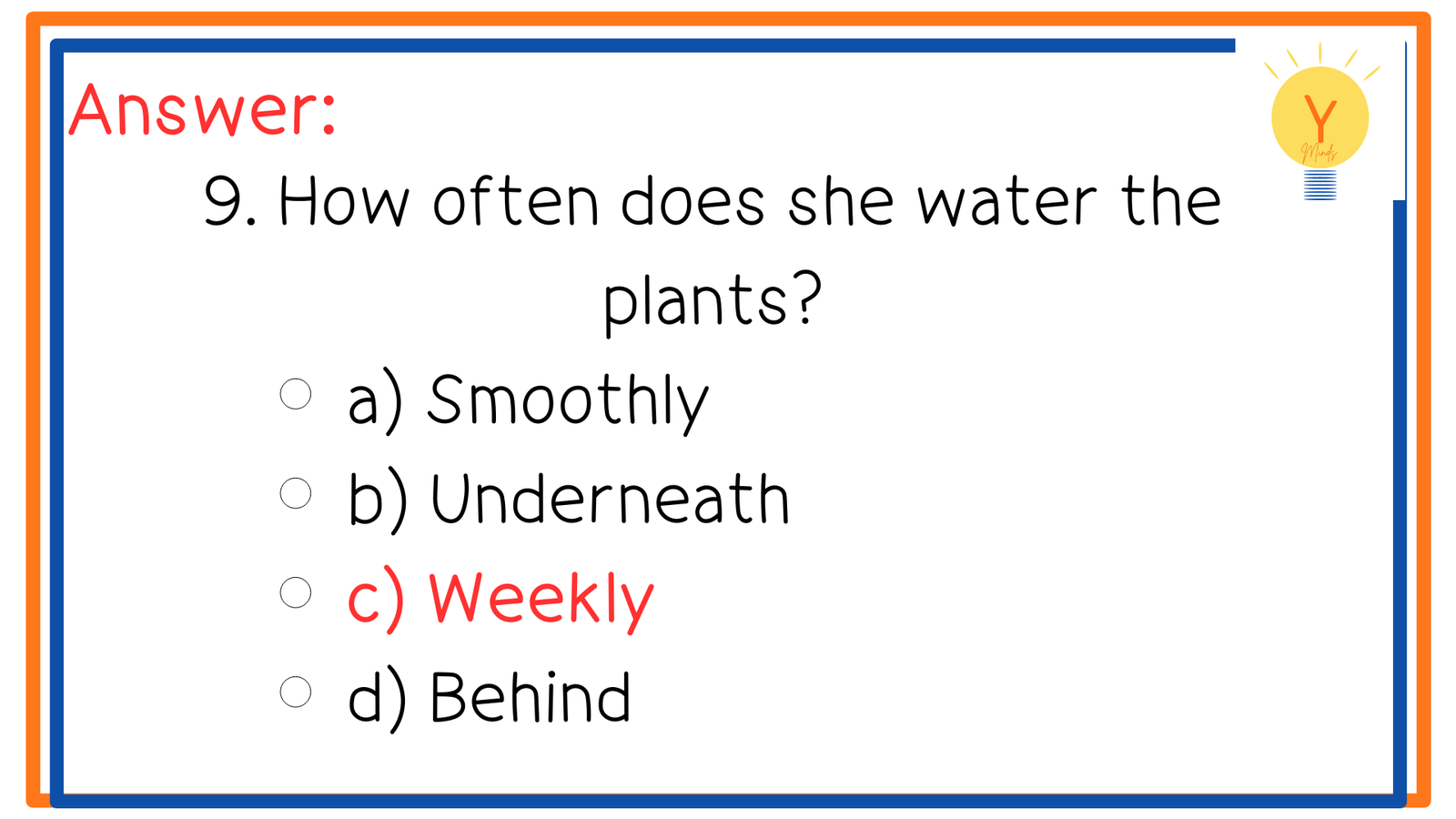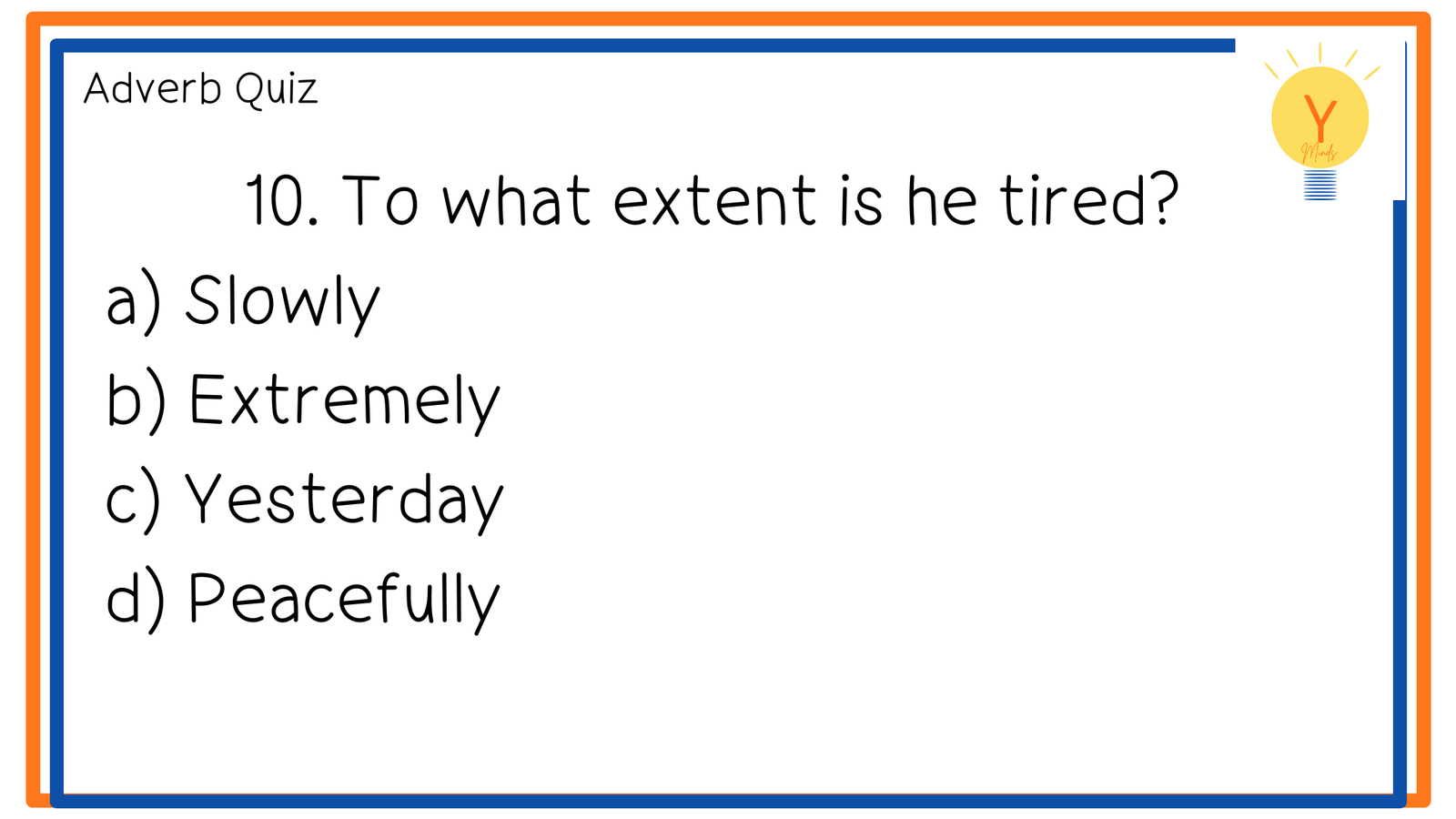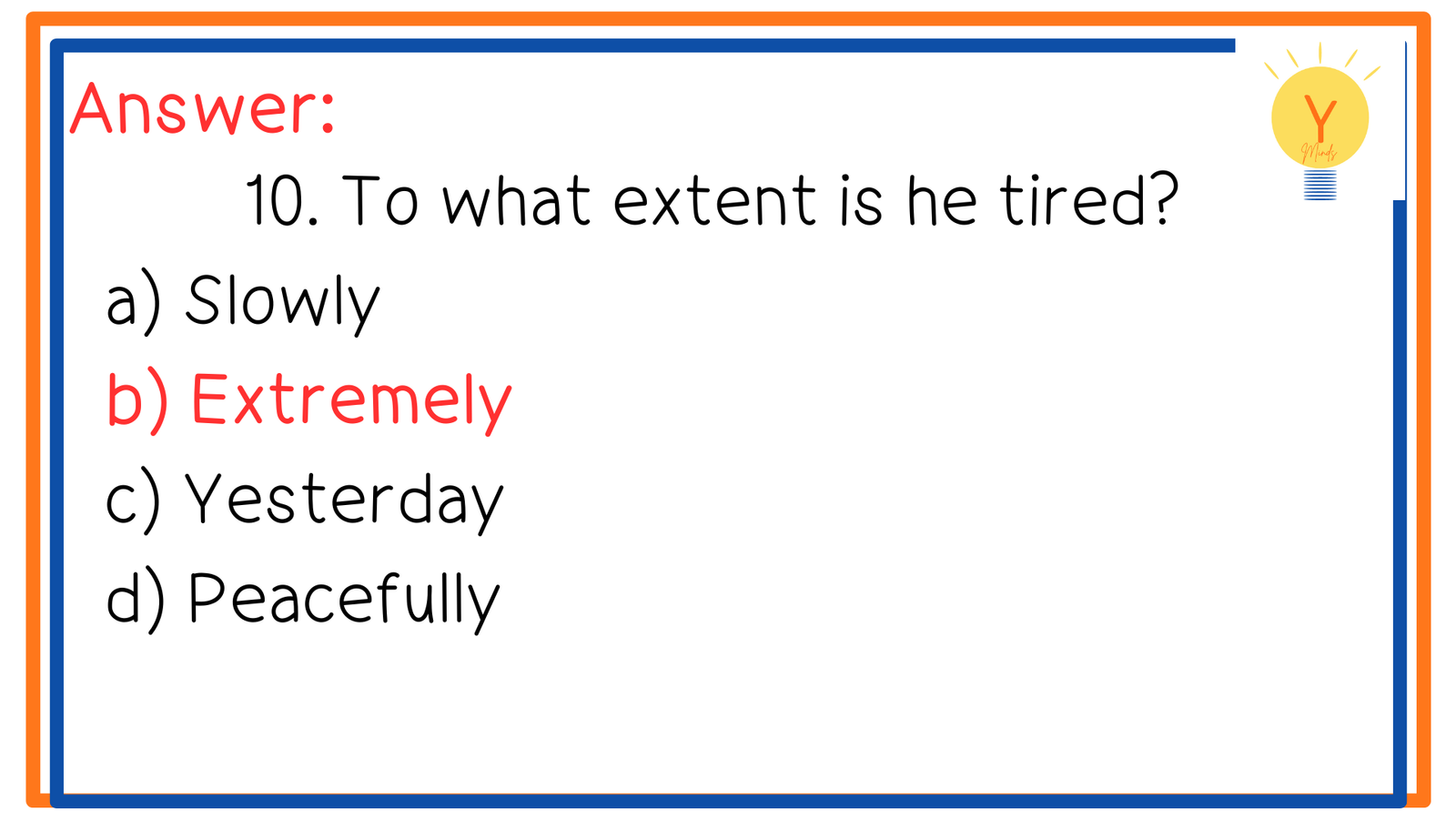Hey Super Learners! Today, let’s dive into the world of adverbs!
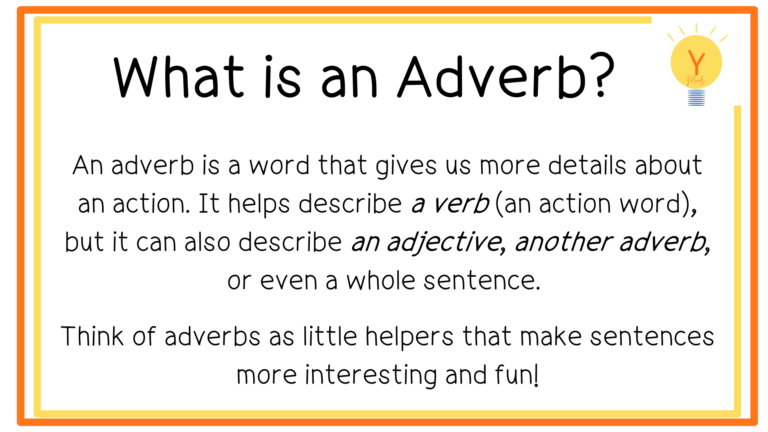
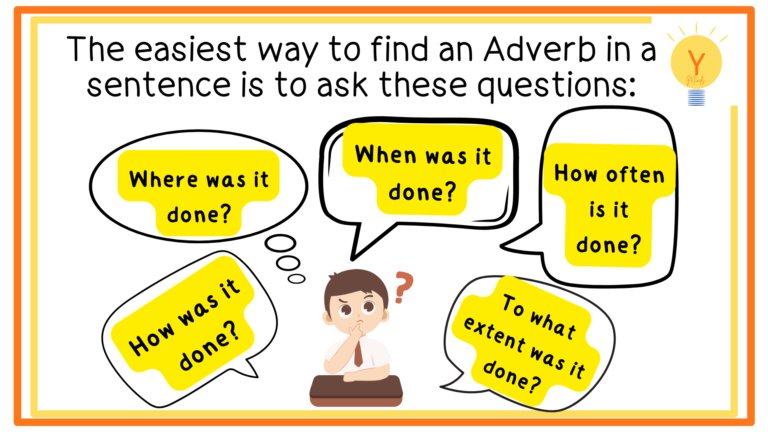
Why Do We Use Adverbs?
Adverbs tell us more about how, when, where, how often, or to what extent something happens. They help paint a clearer picture of what’s going on.
Examples of Adverbs:
- How: Describes how something is done.
- John laughed loudly. (How did John laugh? Loudly.)
- Jane danced gracefully. (How did she dance? Gracefully.)
- Joaquin and Leone are playing ( How are they playing?)
- When: Tells us when something happens.
- Jack ate lunch yesterday. (When did Jack eat lunch? Yesterday.)
- We will go to the park tomorrow. (When will we go to the park? Tomorrow.)
- Let’s play a game ( When will we play a game? Tonight.)
- Where: Describes where something happens.
- The kids are playing outside. (Where are the kids playing? Outside.)
- She left her backpack here. (Where did she leave it? Here.)
- He works ( Where does he work? Downtown.)
- How often: Describes the frequency/ how often something is done
- She rarely (How often does she exercise? Rarely.)
- Tony bakes a cake ( How often does he bake a cake? Occasionally.
- They visit their grandparents ( How often do they visit their grandparents? Weekly.)
- To what extent: Explains to what extent something is done.
- It’s terribly ( How hot is it? Terribly Hot )
- He strongly dislikes the taste of lemon. ( to what extent does he dislike the taste of lemon? Strongly.)
- The building was incredibly ( How high is the building? Incredibly high.)

Adverbs can Describe More Than Just Verbs!
- With Adjectives: Adverbs can add detail to an adjective. For example:
- The ice cream is really (How sweet is it? Really sweet.)
- He is extremely (How funny is he? Extremely funny.)
- With Other Adverbs: Adverbs can even describe another adverb. For example:
- She ran very (How quickly did she run? Very quickly.)
- They played the game incredibly (How well did they play? Incredibly well.)
- With a Whole Sentence: Sometimes, an adverb can change the meaning of a whole sentence!
- Fortunately, we found the lost dog. (It’s lucky that we found the dog!)
Practice Time!
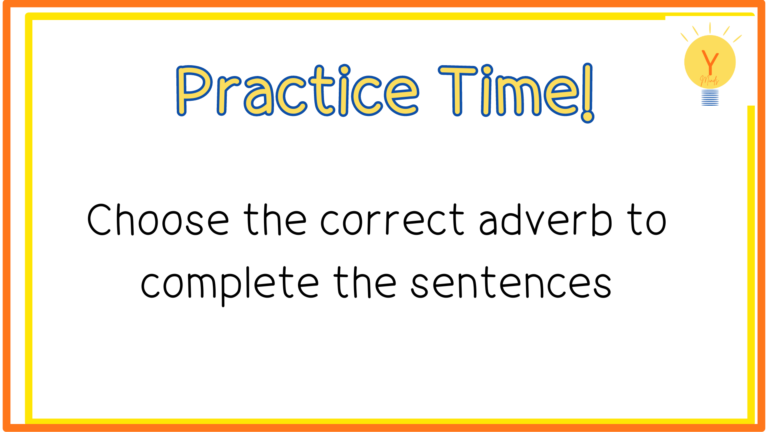
Adverbs Quiz
Score: 0
